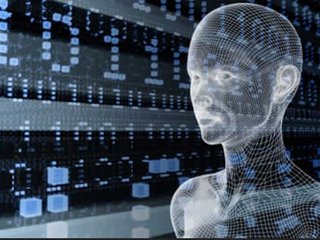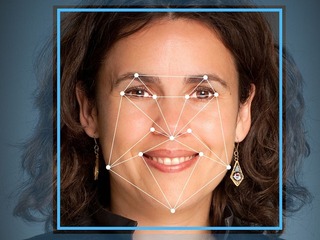
VC funding for AI startups dipped 21 percent in 2015
The year did end on a high note, though, as Q4 saw 19 deals, the most ever in the space

It seems as though artificial intelligence is a space that is finally starting to come into its own, with companies like Apple, Google and Facebook making big bets on it. That's why is was surprising to find out that AI actually saw its numbers drop in 2015.
In all, there was $310 million invested in 54 deals last year, according to data out from CB Insights, down from $394 million in 60 deals in 2014, a 21 percent and 10 percent drop, respectively.
It should also be noted that the reason that 2014 saw so much funding was the result of one company, Sentient Technologies, which raised $103.5 million in November of that year, leading to a record $201 million quarter for the AI space.
No matter how you slice it, though, artificial intelligence has come a long way in just a few years, going up seven times the $45 million that was invested back in 2010.

2015 also ended on a very high note, with a total of $98 million invested in 19 deals, the highest number of artificial intelligence companies that gained funding in a single quarter. The previous high had been 17 in the third quarter of 2014.
Deals during the quarter included H2O.ai, which raised a $20 million Series B round of funding in November, and RapidMiner, which raised a $16 million Series C in December.
There are some signs that artificial intelligence is starting to mature a bit as well.
From 2010 to 2015, the majority of deals were early stage. Seed deals were 50 percent of all fundings last year, and another 19 percent were Series A. However, Series B and C deals have also been on the rise. Series B went from 20 percent in 2013 to 26 percent in 2015, which Series C went from seven percent in 2015 to 15 percent in 2015.
So what does 2016 hold for AI? So far, it's looking pretty good, as there have already been three companies funded in just the first month: Maluuba, which raised a $6.2M Series A, as well as Seldon and Kitt.ai.
The rise of AI
Artificial intelligence is a controversial subject.
Mark Zuckerberg is all too keen on the idea, revealing in a Facebook post earlier this year that his goal for 2016 is to "build a simple AI to run my home and help me with my work."
He also sees big potential in this technology for Facebook going forward.
"At Facebook I spend a lot of time working with engineers to build new things. Some of the most rewarding work involves getting deep into the details of technical projects. I do this with Internet.org when we discuss the physics of building solar-powered planes and satellites to beam down internet access," he wrote.
"I do this with Oculus when we get into the details of the controllers or the software we're designing. I do this with Messenger when we discuss our AI to answer any question you have. But it's a different kind of rewarding to build things yourself, so this year my personal challenge is to do that."
Of course, not everyone is as enamored with the idea of artificial intelligence as Zuckerberg is, as people like Elon Musk and Stephen Hawking have both expressed with own fear and concern about it.
In an interview with the BBC, for example, Hawking once said that "the development of full artificial intelligence could spell the end of the human race."
"Once humans develop artificial intelligence it would take off on its own and redesign itself at an ever-increasing rate. Humans, who are limited by slow biological evolution, couldn’t compete and would be superseded," he said.
Musk, meanwhile, has been on the forefront of the the anti-AI movement for a while now, calling it the "biggest existential threat" to humanity.
Both of them signed a letter earlier this year, along with AI and robotics researchers, explicitly calling for the technology to never be used in warfare.
At our Post Seed event last year, Vinod Khosla also talked about machine learning and automation, predicting that AI will cause steep income disparity.
"If you don't need farm workers on a farm, if you don't need hamburger flippers at a McDonald's restaurant, nobody to cook the food or take the orders. If don't need legal researchers in a law firm. If you don't need radiologists in a hospital. I'm purposely covering a very broad range," he said.
"Look all these functions. They're all easily automatable. And what I prophetize is more than 50 percent of jobs today will disappear. That's a problem because of the income disparity, or inequality, unless we do something large."
(Image source: zmescience.com)
Related News


Vicarious snags $15M for visual artificial intelligence

Artificial intelligence enables a new user experience

Apple buys stealth artificial intelligence company Perceptio

Sense.ly and MindMeld team for AI-driven virtual nurse

